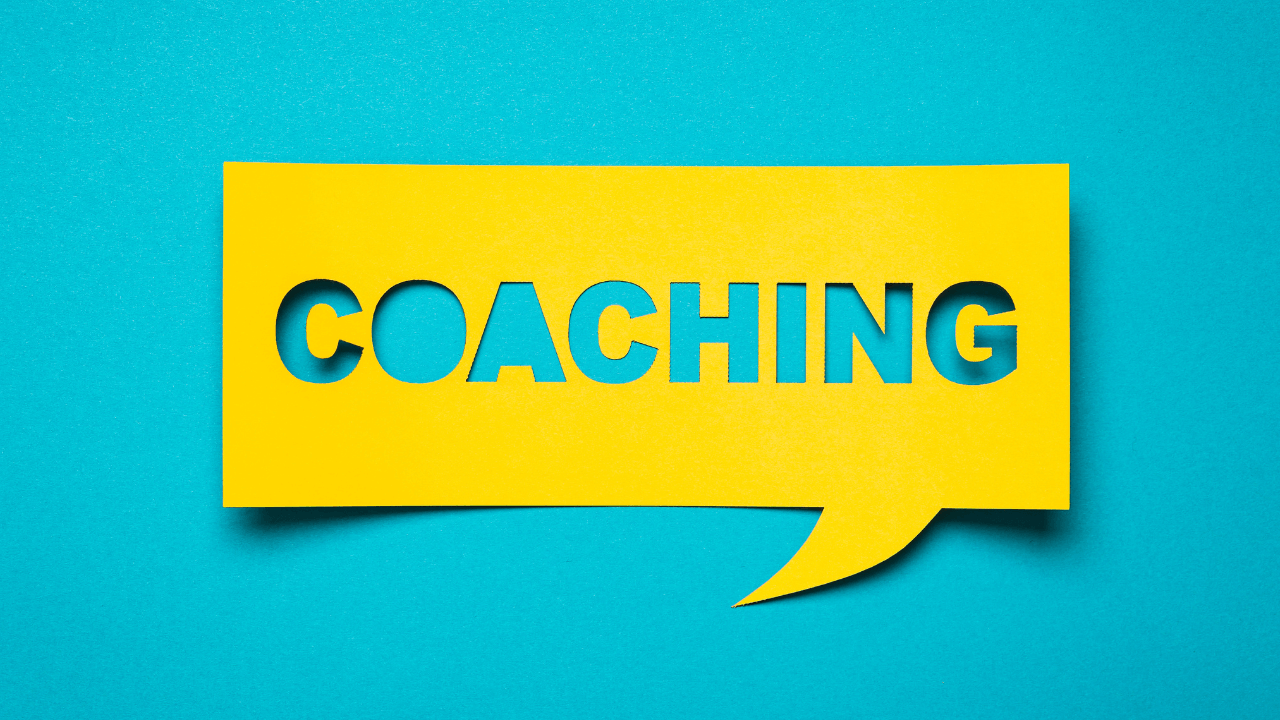
Ever felt stuck in a job that just doesn’t spark joy? You’re not alone.
In today’s ever-changing workplace, many people find themselves lost and unsure of their next career move. That’s where career coaches come in—they help individuals navigate career crossroads and land fulfilling jobs.
The demand for career coaches is booming. Automation and technology are changing the job landscape. People need guidance to stay competitive and find work that aligns with their skills and passions. But being a career coach isn’t just about having the right knowledge—it’s about having the right heart.
Successful career coaches are empathetic cheerleaders, skilled communicators, and active listeners. They can listen deeply to clients’ frustrations and aspirations and translate those insights into actionable steps.
So, you’re ready to empower others to reach their career goals? This guide is the roadmap to becoming a career coach and setting up your dream career coaching business. Get ready to make a real difference in people’s lives!
Understanding Career Coaching
Confused about career coaching vs. career counseling? Here’s a quick breakdown:
Career coaching is all about action and moving forward. You’ll partner with a coach to identify your strengths, interests, and career goals. Then, together, you’ll develop a personalized plan to achieve them.
Career counseling, on the other hand, can delve deeper. Counselors use personality tests or explore past experiences to help you understand what makes you tick. They can also address underlying issues like job anxiety or lack of confidence.
Now, let’s talk about some popular career coaching niches:
📌 Career Transitions: A career transition coach helps explore different options, update your resume and LinkedIn profile, and even practice interview skills.
📌 Resume Writing & Cover Letters: A resume coach helps tailor resumes to specific jobs. The purpose is to highlight achievements and write compelling cover letters that land interviews.
📌 Interview Skills: An interview skills coach helps build confidence, practice answering common questions, and learn how to negotiate salary and benefits.
However, the benefits of working with a career coach go way beyond mastering resumes and interview techniques. A coach also helps identify values, strengths, and passions, leading to a clearer vision for the future. They work with the clients to set SMART goals (Specific, Measurable, Achievable, Relevant, and Time-bound) and develop a concrete action plan.
A coach even acts as an accountability partner, checking progress and motivating clients to stay on track.
Building Your Skills and Knowledge
So, you’ve got the passion to help others navigate their careers. Now, let’s talk about building the knowledge and skills to become a top-notch coach:
Education
Here’s where education comes in. A bachelor’s degree in a relevant field can give you a strong foundation. Consider psychology, human resources, or business administration. These programs equip you with an understanding of all valuable assets for a career coach. Namely, human behavior, organizational dynamics, and business principles.
But don’t worry if a degree isn’t in your cards. Extensive experience in a specific industry or career field can be just as valuable. You’ll bring real-world knowledge and insights to your coaching practice. Think about it — who better to coach someone transitioning into marketing than someone who’s climbed the marketing ladder themselves?
Another option? Relevant coaching certifications. These programs teach you the core coaching skills you need to succeed. Think about active listening and goal setting to communication and building rapport.
Renowned organizations like the International Coach Federation (ICF) offer specialized certification programs. Such programs validate your knowledge and commitment to the profession.
No matter your educational background, ongoing learning is key. Stay up-to-date on industry trends, coaching best practices, and career development resources to ensure you’re providing your clients with the most current and effective guidance.
Here’s the bottom line: Your passion, experience, and commitment to continuous learning truly matter. So, explore your options and find the path that best suits you for your career coaching journey.
Certifications and Training
Ready to refine your coaching skills and gain industry recognition? Earning a career coaching certification is a powerful step. But why? A certification demonstrates your dedication to the profession and validates your coaching expertise. Clients feel confident knowing they’re working with a qualified coach.
Then, certification programs go beyond theory — you’ll receive practical training in core coaching competencies. Plus, many coaching organizations offer member communities for professional development and building your referral network.
So, where do you start? Look for reputable coaching organizations that offer credentialing programs. For instance, the ICF is a globally recognized leader with different levels of certification, each with specific requirements.
Don’t have time for a lengthy program? Explore alternative training options—online courses and coaching boot camps. These provide valuable coaching skills training in a condensed format. They are a great starting point, yes, but keep in mind they might not carry the same weight as accredited certifications.
Here’s the key: Choose a program that aligns with your learning style and career goals. Research the curriculum, accreditation status, and instructor qualifications.
Remember, quality training is an investment, but it will pay off in the long run by equipping you with the skills and knowledge to excel.
Beyond formal training, dive into books and articles on coaching techniques, career development trends, and relevant psychology topics. Attend industry conferences and workshops to stay sharp and learn from experienced coaches.
Developing Your Coaching Niche
Imagine being the “go-to” coach for a specific group of career seekers. That’s the power of niching down in career coaching! Here’s why specializing can be a game-changer:
Become an Expert
Focusing on a niche allows you to delve deeper into your clients’ challenges and opportunities. You’ll build a strong understanding of industry trends, relevant resources, and specific coaching strategies to help your clients excel.
Stand Out from the Crowd
A crowded marketplace? Niching helps you stand out!
Clients searching for a career coach will be drawn to someone with specialized expertise that directly addresses their needs.
Attract High-Paying Clients
Specialization often leads to premium pricing. When you’re seen as the expert in your niche, clients are willing to pay more for your targeted knowledge and proven results.
So, how do you find your niche? Think, what excites you in the career world? Do you love helping recent graduates navigate their first job search? Identify an area that sparks your enthusiasm — attract clients who share your interests.
Do you have experience in a specific industry or functional area? This knowledge can be a valuable asset when coaching clients in a similar field. Once you’re sure, research online communities, job boards, and industry publications to identify trends and challenges faced by different career demographics.
Here are some popular niche examples to get you started:
- Recent Graduates: Help clients navigate the job search process. Craft compelling resumes and develop strong interview skills.
- Career Changers: Guide clients through the transition process. Identify transferable skills and build a resume that showcases their versatility.
- Executives: Assist them with leadership development, career advancement strategies, and navigating complex workplace dynamics.
Remember, niching doesn’t mean limiting yourself. You can always expand your expertise over time, but start with a focused niche. This will help you establish yourself as a trusted advisor and build a thriving career coaching business.
Launching Your Career Coaching Business
You’ve honed your skills and chosen your niche — now it’s time to launch your career coaching business! Here’s how:
Business Model and Services
First, consider your coaching delivery model. Here are the main options:
📌 One-on-One Coaching: This personalized approach allows you to tailor the coaching experience for each client. One-on-one coaching often commands premium rates but also requires more time investment.
📌 Group Coaching Programs: This option allows you to coach multiple clients at once, making it time-efficient. You can design programs around specific themes like resume writing or interview skills. You can also create ongoing programs for long-term career development. Group coaching typically comes with a lower price tag per client compared to one-on-one sessions.
📌 Online Coaching: Technology makes it possible to coach clients virtually. This opens your services to a broader audience and offers flexibility. You can use video conferencing tools, online communities, or even pre-recorded content to deliver in this model.
The best model (or even a combination) depends on your preferences, target audience, and niche. Experiment and see what works best for you and your clients.
Next, it’s time to create your coaching packages. These are clear and concise outlines of the services you offer. Here’s the key: Your packages need to be valuable and solve specific client problems.
Don’t just list features — focus on the benefits. For example, instead of simply offering “resume writing,” your package could be called “Land Your Dream Job with a Powerful Resume”. Highlight outcomes like increased interview invitations.
Offer a variety of packages to cater to different needs and budgets. Consider including elements like number of coaching sessions, access to online resources, email or phone support between sessions and career assessments or personality tests
By providing clear, value-driven packages, you set expectations for your clients and make it easier for them to choose the right program for their needs.
Branding and Marketing
In a competitive market, standing out is key. That’s where branding and marketing come in! Think of your brand as your online reputation. It reflects your expertise, values, and coaching style. Develop a brand that resonates with your target audience.For starters, your website. It is your online storefront — it’s the first impression you make on potential clients. Invest in a professional website with a clear and user-friendly design. Here are some must-haves:
- Choose a Catchy Domain Name: This is your web address — keep your domain name short, memorable, and relevant to your coaching niche.
- About Me Page: Tell your story. Highlight your experience, coaching philosophy, and what makes you passionate about helping others.
- Services Page: Clearly outline your coaching packages and explain the benefits of each program.
- Testimonials Page: Showcase positive feedback from satisfied clients. Social proof builds trust and credibility.
Social media platforms are also powerful tools for connecting with potential clients. Focus on platforms your target audience uses and share valuable content. Don’t just sell — provide free advice and establish yourself as a thought leader in your niche.
Here are some additional marketing tips:
- Offer free consultations so potential clients can experience your coaching style and see if you’re a good fit.
- Write guest articles for career-related websites or blogs. This increases your online visibility and positions you as an expert.
- Run targeted online ads to reach your ideal audience through social media advertising or search engine marketing.
Building a strong brand and implementing effective marketing strategies is an investment that will pay off in the long run. By consistently putting yourself out there and showcasing your expertise, you’ll attract qualified clients and build a thriving career coaching business.
Setting Up Your Career Coaching Business
Congratulations! You’re ready to launch your career coaching business officially. But before you start booking clients, consider establishing a legal business structure. Why?
A business structure separates your personal assets from your business finances. This means if someone sues your business, your personal belongings like your car or house are typically protected. Plus, different business structures have different tax implications. Consulting with a tax advisor can help you choose the structure that minimizes your tax burden.
There are several options to consider, each with its own advantages and disadvantages:
- Sole Proprietorship: This is the simplest structure, but it offers no liability protection. Your business and personal finances are one and the same.
- Partnership: This is an option if you’re co-founding your business with someone. However, all partners share legal and financial responsibility.
- LLC: This structure offers the most liability protection, but it’s also the most complex to set up and maintain.
Choosing the right structure depends on your specific needs and risk tolerance. Consider factors like potential liability, tax implications, and your business’s size and complexity.
Remember, consulting with a formation expert like doola is crucial to determine the best structure for your unique situation. This ensures you’re operating legally and maximizing your financial benefits.
Growing Your Career Coaching Business
Client Acquisition Strategies
So, you’ve launched your business — now how do you find clients?
Share valuable content like blog posts, articles, or videos on career development topics. This positions you as an expert and attracts clients searching for answers online. You can also offer free webinars on relevant career topics to showcase your coaching expertise and nurture leads.
In the long run, build strong relationships with career counselors, HR managers, or university career centers. These connections can refer potential clients to your coaching services.
Remember, attracting clients is a marathon, not a sprint. To attract ideal clients, focus on building trust and establishing yourself as a valuable resource.
Continuous Learning and Development
The world of work is constantly evolving, and so should your coaching practice. Staying ahead of the curve is key to providing your clients with the most relevant and effective guidance.
New trends always emerge — from in-demand skills to innovative job search strategies. Continuous learning ensures you’re equipped to address your clients’ evolving needs. Then, there’s always room to grow as a coach. Attend workshops on new coaching techniques or communication strategies to elevate your coaching practice and enhance results.
Some resources to fuel your professional development include industry conferences, subscriptions to professional publications, and online courses offered by coaching organizations or reputable platforms.
Investing in your ongoing learning is an investment in your business. By staying knowledgeable and honing your coaching skills, you’ll provide your clients with the best possible support.
Take the First Step Towards Your Career Coaching Journey
So, you’re ready to empower others to reach their career goals? Remember, becoming a career coach isn’t just about building a business. It’s about making a real difference in people’s lives.
You’ll witness clients’ joy at landing their dream jobs, their confidence as they navigate career transitions, and the fulfillment they achieve by pursuing their passions.
Ready to take the first step? Consider doola for company formation to navigate the business setup process. The world of career coaching awaits — are you ready to answer the call?







